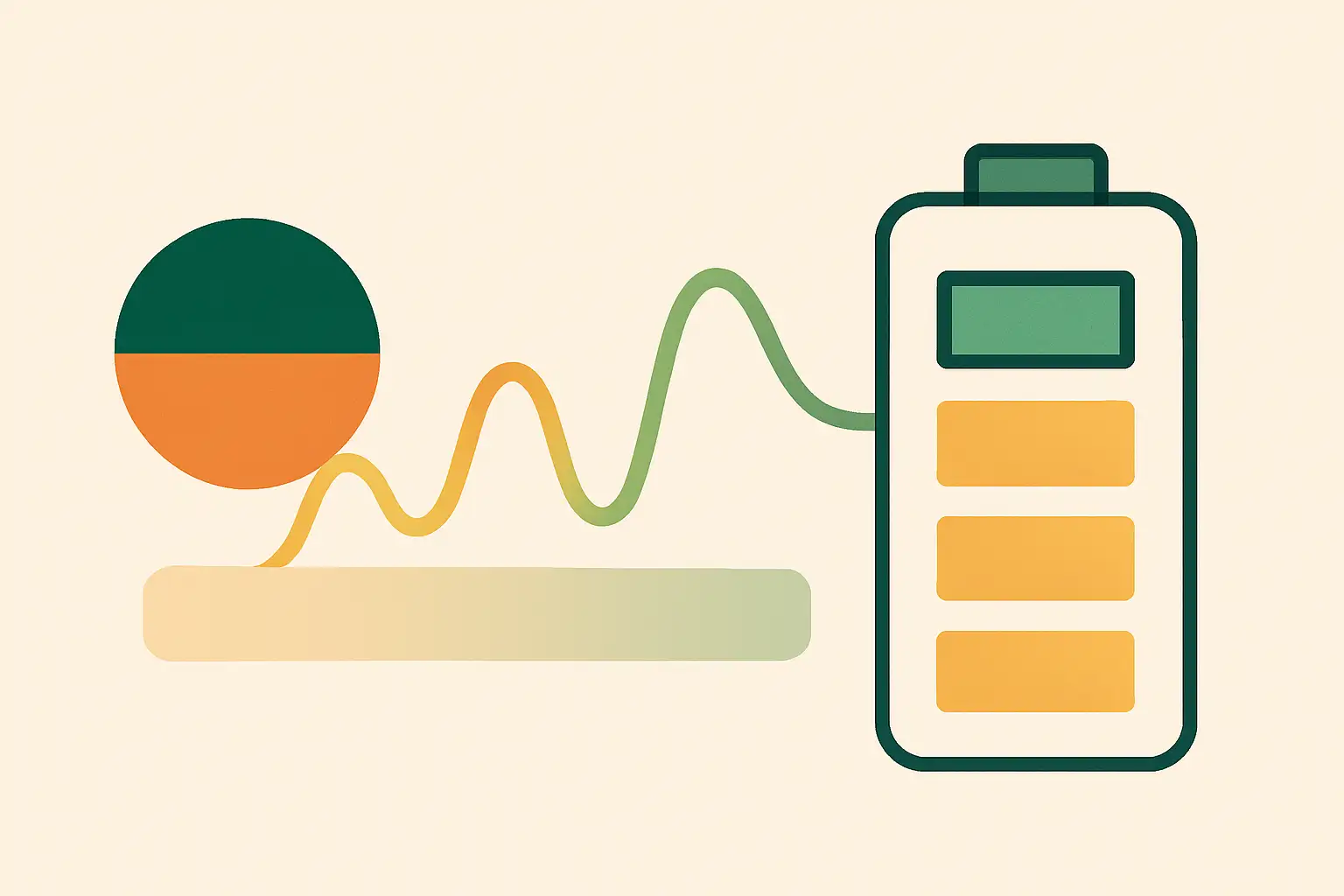Steady Blood Sugar for a Fully Charged Day

Translated by AI
Do you often find yourself feeling sleepy and weak in the afternoon? Or perhaps you eat a big breakfast, yet feel hungry again within two hours? These experiences are often directly related to "blood sugar fluctuations."
Diet is an unavoidable part of life. This makes it essential not only to eat healthily but also to eat strategically, ensuring your energy remains consistent from morning till evening. Let us delve into three essential aspects for crafting an energy-rich lifestyle: "Blood Sugar Fluctuation's Impact on Body Energy," "Foods That Instigate Blood Sugar Fluctuations," and "Optimal Eating Approaches."
How Does Blood Sugar Impact Your Energy?
When food is digested and metabolized, it transforms into glucose, which circulates through your bloodstream—this is blood sugar, the body's most immediate energy resource. Blood sugar is particularly crucial for the brain's fuel needs, and when unstable, you might encounter:
- High Blood Sugar Spikes: Experience brief bursts of exhilaration, followed by sudden fatigue.
- Rapid Blood Sugar Drops: Feel exhausted, distracted, emotionally volatile, and prone to binge eating.
This resembles lighting a fire with paper—it burns brightly and swiftly but fizzles out quickly. To maintain steady energy levels throughout the day, the key is ensuring a stable blood sugar curve, avoiding sharp peaks and valleys.
Which Foods Trigger Significant Blood Sugar Swings?
The primary element affecting blood sugar is the "type and digestion speed of carbohydrates." The following foods usually lead to swift blood sugar hikes:
- Refined Sugars: Like desserts, sugary beverages, and breakfast cereals.
- Refined Carbohydrates: Including white rice, white bread, and white pasta.
- Unaccompanied Carbohydrates: Not paired with proteins or fats.
Such foods are characterized by a high Glycemic Index (GI), quick digestion, and an abrupt spike in blood sugar, initiating substantial insulin secretion, followed by a rapid drop in blood sugar, resulting in a plunge in energy levels and fatigue.
Strategies for Crafting a Fully Charged Diet
By honing in on dietary habits, implementing a few critical changes can prevent blood sugar levels from becoming a rollercoaster ride, fostering genuine "sustainable energy."
Prioritize High-Fiber Carbs and Complex Starches: Instead of white rice, choose brown rice, quinoa, sweet potatoes, and oats. These options are laden with dietary fiber, slowing glucose release and aiding in stabilizing blood sugar. - Recommended Intake: Substitute morning bread, radish cake, and cereal flakes with oats + nuts + soy milk; use sweet potatoes in place of white rice for lunch and dinner.
Ensure Protein Presence in Every Meal: Proteins slow down carbohydrate digestion, decrease overall meal glycemic response, and boost satiety, making hunger and overeating less likely. - Recommended Intake: Tofu, eggs, fish, and legumes are stellar options; a palm-sized portion suffices per meal.
Integrate "Good Fats" for Prolonged Energy Release: Healthy fats like nuts, avocados, olive oil, and deep-sea fish stabilize blood sugar increase while nourishing the nervous and hormonal systems. - Recommended Intake: Add a teaspoon of nut butter at breakfast, olive oil to lunch salads, and pair dinner with grilled salmon.
Snacking Strategy: Choose Wisely over Abstinence: If afternoon hunger strikes, rather than grabbing cookies, opt for a "low-sugar + high-fiber + protein" blend. - Recommended Intake: Unsweetened soy milk + a handful of nuts or a boiled egg + cucumber.
Sequential Eating: Vegetables First, Carbs Last: As advised by biochemist and blood sugar management expert Jessie Inchauspé, known as the Glucose Goddess: Begin with vegetables → then protein → finish with carbohydrates to effectively decelerate blood sugar escalation. - Recommended Intake: Commence each meal with greens, reserving carbs for the final bite.
Note: Emotions and Stress Can Also Influence Blood Sugar
Beyond nutrition, emotional stress can trigger adrenaline and cortisol, the stress hormones that elevate blood sugar levels even without food consumption. Thus, stabilizing energy involves not only mindful eating but also emotional well-being and balanced breathing rhythms.
Stable Blood Sugar, Steady Energy
Avoid being caught in the blood sugar rollercoaster. Designing a personal eating rhythm will lead to steadier mental states, a lighter body, and calmer emotions.
Maintaining stable blood sugar is essential for building an "internal reliable power supply system.”










